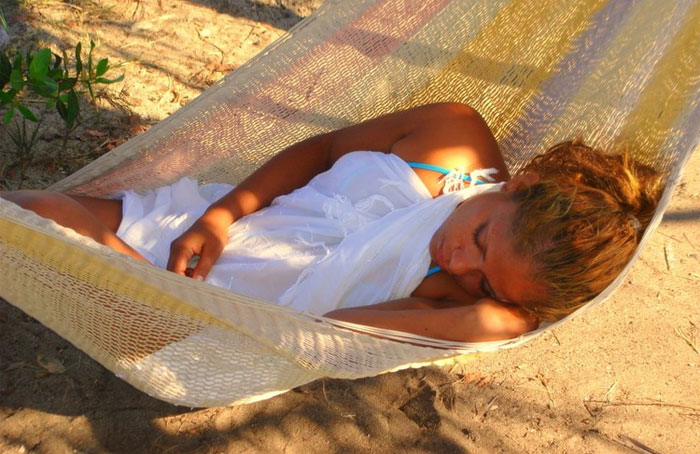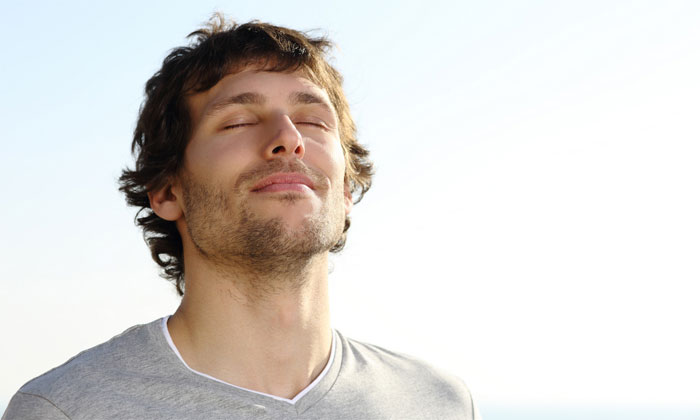How long do people not eat, sleep or breathe?
The human body is not as solid as we often think. However, there are people who like to challenge them to the limits of nature.
Looking at these people, we can see the miraculous compensatory mechanism of the human body in the absence of food and oxygen to sustain life in a surprising time.
Here are 5 examples of human supernatural suffering:
1. 11 days without sleep

Sleep is very important to humans, just over a week of sleep deprivation has led to depletion or even death.
In 1965, 17-year-old girl Randy Gardner set a world record for not sleeping within 264.4 hours, equivalent to 11 days and 24 minutes.
However, science has demonstrated the importance of sleep for memory and exercise as well as the ability to stay awake the next day. Because it is not good to stay awake like the girl above!
2. 22 minutes holding your breath

The longest breath-holding record established in 2012 belongs to Stig Severinsen - a Danish free diver - with a 22-minute breath-stopping time.
According to researchers, the normal human brain will stop working if it is not provided enough oxygen for about 4 minutes. However, Severinsen deceived the god of death with a breath of pure oxygen within the previous 19 minutes.
This causes his body to saturate with oxygen and therefore it can maintain brain function even when he is diving deep in the water.
3. 18 days of fasting and drinking

18 days is the ultimate limit of the human body without nutrients.
Water is more essential to human body than food. Water accounts for 60% of the adult body, plays an important role in the lubrication of joints, leaching waste and regulating body temperature.
However, in 1979, an 18-year-old man named Andreas Mihavecs was accidentally found in a state of starvation and neglect under a cell in a prison cellar. The incident was not only astonished by the miraculous survival but also a wave of resentment about the authorities' reprimand at the time. Mihavecs then took several weeks to recover and return to normal.
4.3737.7 days in a zero gravity environment
The human body was born to adapt to the environment subjected to Earth gravity. Therefore, astronauts operating in the vacuum environment often face the risk of declining mass and tolerance of muscles and cardiovascular system.

It must also be admitted that floating in the air seems very interesting, but not throughout 437.7 days, like the world record for the longest space voyage set up by astronauts. Russian Valeri Polyakov in 1995.
5. Many years without sunlight
One of the adventure games for those reckless people is to bury themselves. In 2004, the Czech magician Zdenek Zahradka set a world record after 10 days buried in a coffin, no light, no food, no drinking. The only thing that keeps him alive is a snorkel.

Life in the dark may not sound interesting at all.
However, the world record for the longest living in a lack of sunlight belongs to a baby. In 2012, Russian police discovered a cult living underground in the territory of the Republic of Tatarstan, which noted that many children of this sect member had never seen the sun.
Scientifically proven, sunlight is an important source of vitamin D to help the body absorb calcium for strong bones. Besides, it also plays a role in catalyzing the elimination of serotonin, substances that support emotional regulation, digestion and sleep.
- 30 facts about sleep
- The reason people have to sleep
- 6 recipes look ridiculous but make life easier to breathe
- How many times do you wake up during the night?
- Breathe through your nose with what benefits?
- What time to sleep is good for your health
- Sleeping tips help you to be
- Video: What will your lungs do if you breathe deeply?
- People know when to sleep?
- Breathing deeply helps to reduce anxiety and stress
- Let young people get enough sleep if they don't want to turn them into criminals later
- Why the more insomnia, the more difficult you sleep?
 'Fine laughs' - Scary and painful torture in ancient times
'Fine laughs' - Scary and painful torture in ancient times The sequence of numbers 142857 of the Egyptian pyramids is known as the strangest number in the world - Why?
The sequence of numbers 142857 of the Egyptian pyramids is known as the strangest number in the world - Why? History of the iron
History of the iron What is alum?
What is alum?